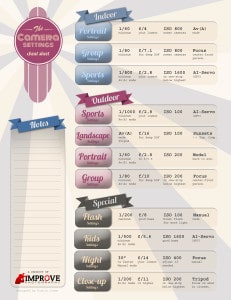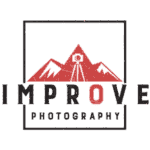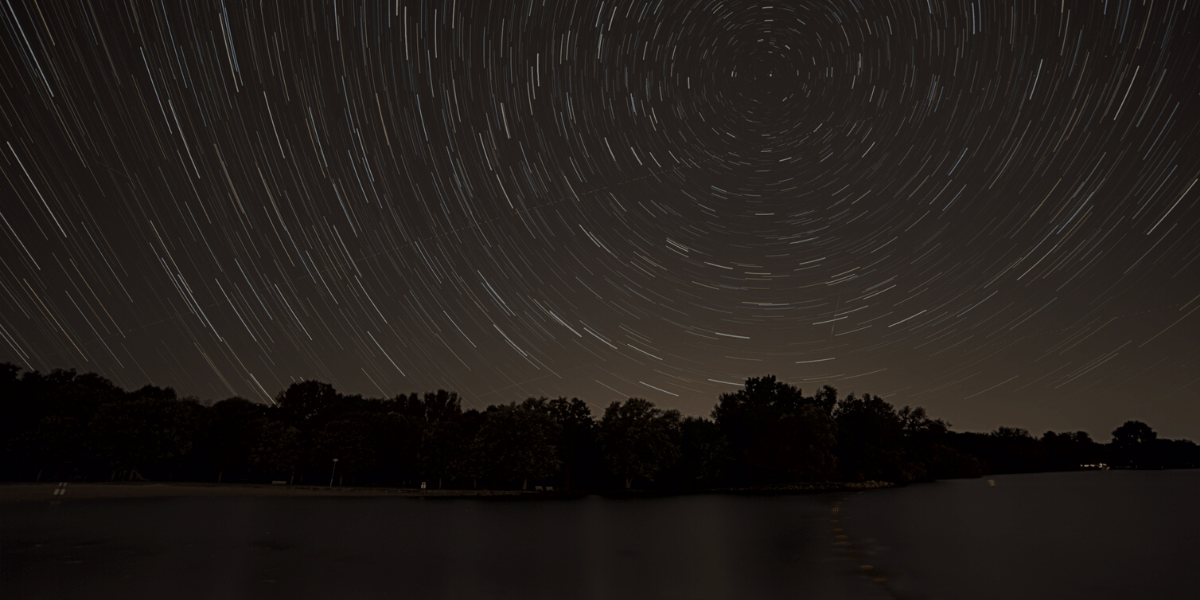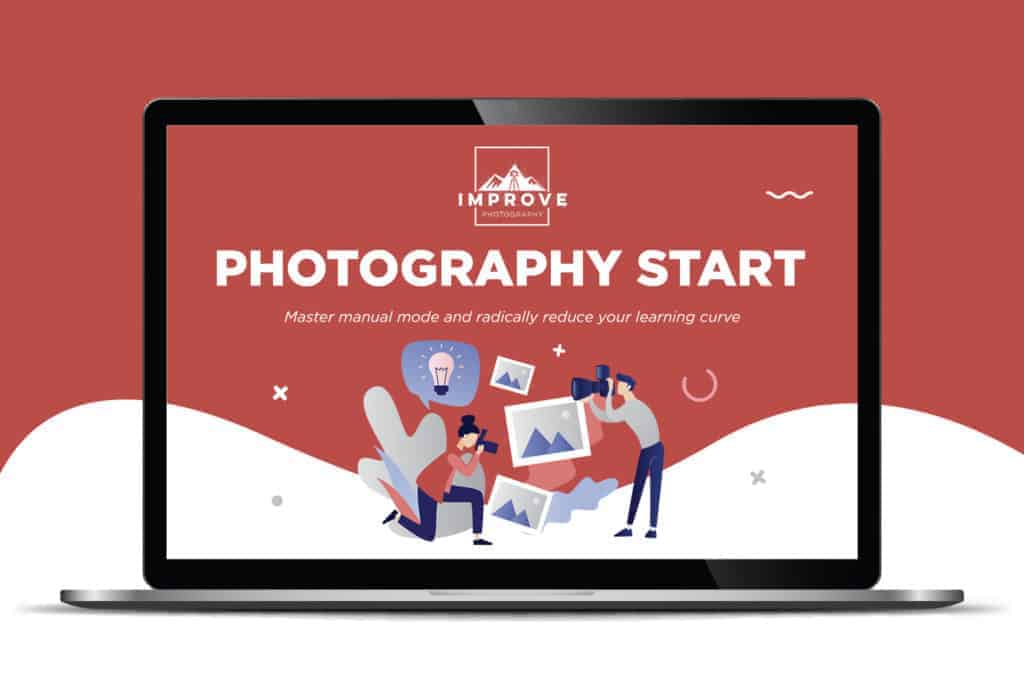I'm so glad you found your way onto my Photography Basics series. I have taught the basics of photography to millions of photographers around the world through Improve Photography, so I know just exactly how difficult it can seem to learn the basics of photography.
My goal is to make this Photography Basics series the absolute simplest way to learn the basics of photography.
I hope you'll love this series because of what you learn here, and I hope you'll join the Improve Photography community after you get your feet wet with the photo basics. Let's get going.
Basic Equipment You'll Need
You can do photography with even the simplest of cameras, but the principles that I'd like to teach are for people who want to learn to use a DSLR camera, a micro four-thirds camera, or at least a camera that allows the photographer to adjust the shutter speed, aperture, and ISO. Even some pocket cameras have this functionality.
Here are some of our entry level DSLR options. The (with Accessories) link will show you a kit that comes with the camera, lens, case, extra battery, and a memory card:
Canon EOS Rebel T6 with 18-55mm and 75-300mm Lenses (with Accessories)
Nikon D5600 with 18-55mm and 70-300mm Lenses (with Accessories)
Canon EOS Rebel T7i with 18-135mm Lens (with Accessories)
Now that you have your camera, it is time to learn exposure.
Exposure–the most basic element of photography
When photographers talk about “exposure,” we simply mean the brightness or darkness of a photo. It seems simple enough to take a photo that is correctly exposed (has the proper brightness or darkness), but in reality it can be quite the trick.

To help get the right exposure with your camera settings – you can download this Camera Settings Cheat Sheet guide.
If you're reading this Photo Basics series, it probably means that you currently shoot on the “Green mode” of your camera–or the automatic setting. That means the camera entirely controls the exposure of the picture. When you shoot on automatic mode, your camera selects an aperture setting, an ISO setting, a shutter speed, and a host of other settings for you.
Automatic can be handy, but it also seriously limits your creative ability to make a beautiful picture.
Want proof that automatic isn't the best way to shoot? Check out the picture below. On the left, the picture was taken entirely in automatic mode on a Canon Rebel DSLR. That might look okay to you… until you see the picture on the right. Same sunset. Same camera. The pictures were taken only seconds apart. The difference? The picture on the right was taken using manual exposure.

Which photo do you prefer? Probably the picture on the right! By choosing a creatively dark exposure, the rich colors in the sunset were allowed to shine through.
However, technically, the photo on the left is “correct,” and the photo on the right is “incorrect.” The camera saw through the lens and tried to expose the bird so that it wouldn't become a shadow. To me, the photo was not about exposing the bird properly, but exposing the sunset properly. The bird was just a nice shape to include in the foreground. This is exactly why you must learn exposure–because sometimes the “scientifically correct” exposure is not the best exposure to make the photo look how you want it to.
What's next?
Now that you understand why it is so important to take control over the exposure, let's move on to shutter, aperture and ISO–which are the tools you need to control the exposure. Soon you'll understand the basics of how to shoot in manual mode on your camera. I promise shooting in manual mode isn't nearly as scary as you might think.
Once you're ready to deepen your knowledge of manual mode, get tack sharp focus, and master lighting, consider buying my Photography Start Course. It's a series of 22 video tutorials where I walk you step-by-step through the things that it normally takes my photography students two years to learn. Other photography websites sell a very similar course for $300. I've priced it at a REALLY reasonable price because I remember how tight money was when I was a beginner.



I am a begginer, I am able to afford any of these two cameras, the Sony A-6000 or Panasonic GM-5
As a begginer, what do you recommend on any of these two choices?
In terms of price the Panasonic GM-5 is sold for $571 with two lenses, 12-32mm and 35-100mm, the Sony A-6000 for $699 with two lenses, 16-50mm and 55-210 mm
As a beginner planning to go professional under months, what kinda camera would u suggest would be suitable for someone like me. to last through the amateur stage and still very durable and good to use as a professional
Wow that is a very open question! I think before anyone could answer this for you, they would need to ask you a fair number of questions.
Most importantly what genre of photography you were considering persuing?
For example if you were working purely in a studio a large heavy cameras such as the Nikon D4 isn’t an issue. However, up the side of a mountain, together with a rack of climbing gear a D4 would be most impracticable.
Ada general rule those cameras deemed to be “professional” cameras are given the name for a reason. They are robust, there construction Is often magnesium or some such material. They are often waterproof and generally designed to take all the knocks associated with professional use. They are after all, a tool of the trade.
If money is no object then buy a professional grade camera. If you are careful with your equipment then a “prosumer” camera (a semi professional / enthusiasts camera) would suffice.
If you are on a budget then by the highest quality lenses you can afford and buy a used professional camera body (remember camera bodies come out every five minutes and deprecate at an astonishing rate) where as quality lenses change little in price and change rarely.
Good luck with your endeavour!
how to shpt photo of the horse like the prety foto uptop?
Hi, I’m new to photography and so far your guide as help me so much more than school. I can now get what I want in my pictures. I will definitely buy your course.
Hey Jim great article! I can’t wait to learn more.
Thank you so much admin, while giving us the opportunity to take their link on this forum
I am extremely impressed with your writing skills
as well as with the layout on your blog. Is this a paid theme or did you customize it
yourself? Either way keep up the excellent quality writing,
it is rare to see a great blog like this one today.
I can’t stand reading time-consuming articles, only because i have got some dislexia, but
i really liked this article
You so stupid
Hey there, You have done a fantastic job. I’ll definitely digg it
and personally suggest to my friends. I am sure they will
be benefited from this site.
Hi guy,
Thank for your amazing post.
I’m a newbie in photography and I’m so happy to find your site. It is so helpful and informative for the beginner.
Once again, Thank for sharin and keeping it up!
I thought there used to be a search tool on this site but I can’t find it. I shoot everything RAW with a Nikon D90. What color space should my camera be set to or does it matter? Adobe RGB or sRGB? By the way, it’s set to Adobe RGB now. Thank you.
Reid
How do I login; I purchased HD Videos ?
Hey Richard, please send us an e-mail to [email protected]. We’d be happy to help get the download information sent to you.
Thank you
RX
Your website is really super! Photography is my hobby. And I want to improve my skills. I learned a lot of tips for beginning photographers on this resource: fixthephoto.com. Now I found your site. I like it! Thank you very mach for your job.
great post, very good. Thank you for sharing it.
I’ve found Fotoji (fotoji.co/learn) to be a great learning tool in developing my photography skills.
It’d be a great addition to these posts as it allows you to actually ‘see’ what aperture and iso actually does.
Thanks for sharing. I see the novelty of your writing, I will share it for everyone to read together. I look forward to reading many articles from you.
beautiful thought
Good day.
I am Ronnie Van der Merwe from South africa.I completed my freelance journalism certificate course this year.I have already had eight articles published.Photography was not part of the course.
My biggest challenge is not having the perfect,professional photos when I submit my work.I normally use my phone or small digital camera.
Any advice from you.I would also appreciate it if you could forward me contavmct details as I would like more advise and suggestions .
Regards
Ronnie Van der Merwe